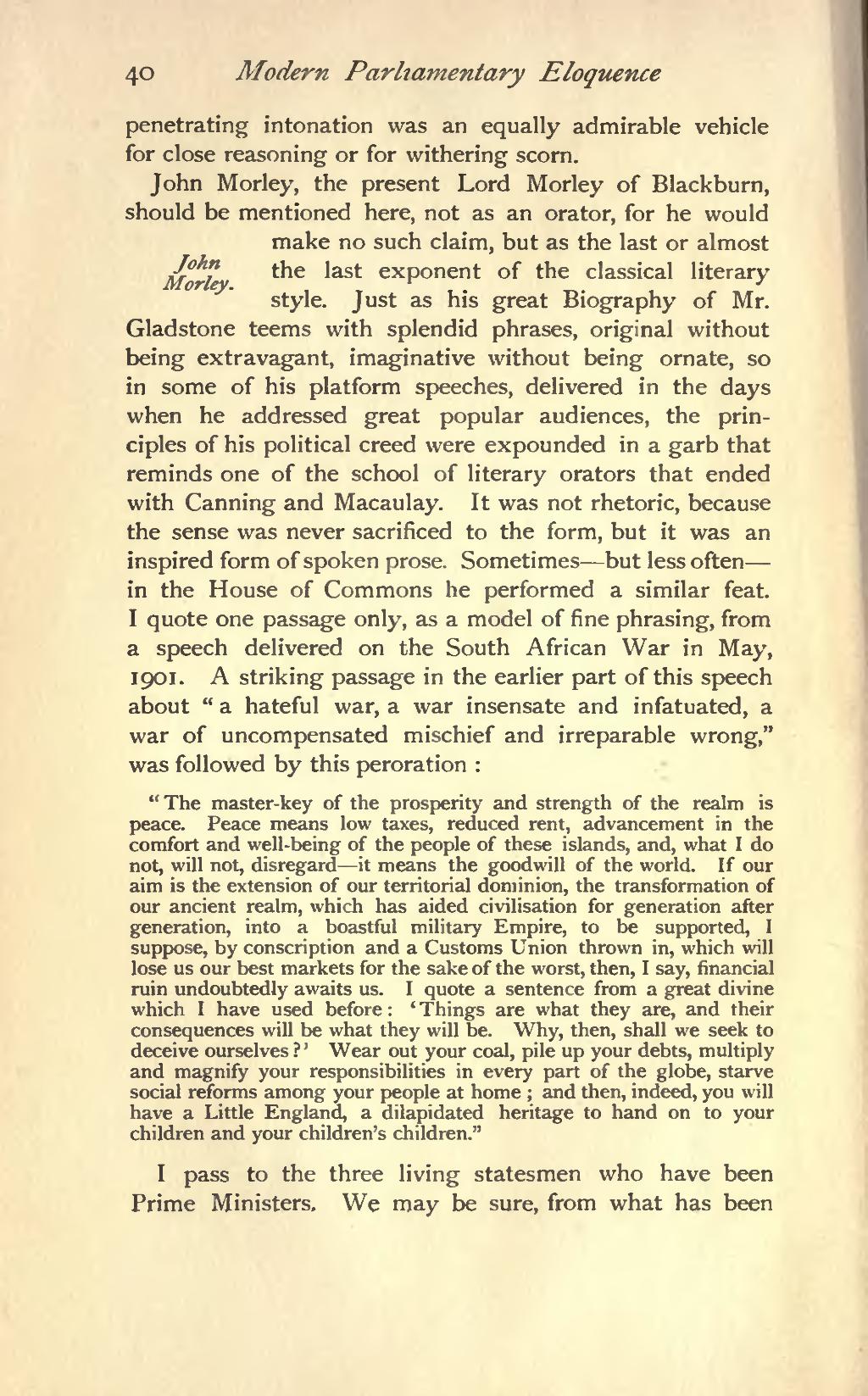penetrating intonation was an equally admirable vehicle for close reasoning or for withering scorn.
John Morley.John Morley, the present Lord Morley of Blackburn, should be mentioned here, not as an orator, for he would make no such claim, but as the last or almost the last exponent; of the classical literary style. Just as his great Biography of Mr. Gladstone teems with splendid phrases, original without being extravagant, imaginative without being ornate, so in some of his platform speeches, delivered in the days when he addressed great popular audiences, the principles of his political creed were expounded in a garb that reminds one of the school of literary orators that ended with Canning and Macaulay. It was not rhetoric, because the sense was never sacrificed to the form, but it was an inspired form of spoken prose. Sometimes but less often in the House of Commons he performed a similar feat. I quote one passage only, as a model of fine phrasing, from a speech delivered on the South African War in May, 1901. A striking passage in the earlier part of this speech about "a hateful war, a war insensate and infatuated, a war of uncompensated mischief and irreparable wrong," was followed by this peroration:
" The master-key of the prosperity and strength of the realm is peace. Peace means low taxes, reduced rent, advancement in the comfort and well-being of the people of these islands, and, what I do not, will not, disregard it means the goodwill of the world. If our aim is the extension of our territorial dominion, the transformation of our ancient realm, which has aided civilisation for generation after generation, into a boastful military Empire, to be supported, I suppose, by conscription and a Customs Union thrown in, which will lose us our best markets for the sake of the worst, then, I say, financial ruin undoubtedly awaits us. I quote a sentence from a great divine which I have used before: ' Things are what they are, and their consequences will be what they will be. Why, then, shall we seek to deceive ourselves? J Wear out your coal, pile up your debts, multiply and magnify your responsibilities in every part of the globe, starve social reforms among your people at home; and then, indeed, you will have a Little England, a dilapidated heritage to hand on to your children and your children's children."
I pass to the three living statesmen who have been Prime Ministers, We may be sure, from what has been
